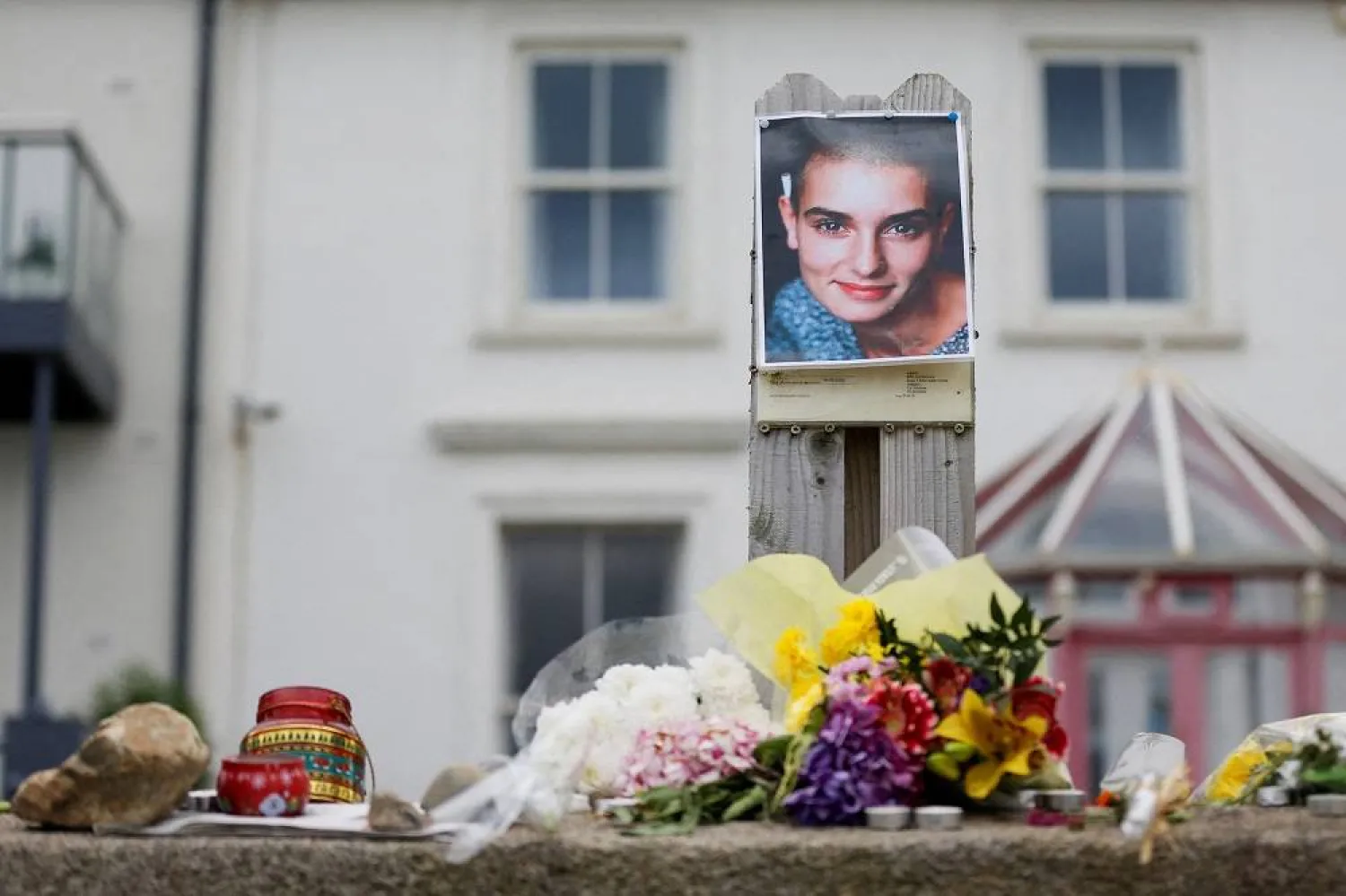Death threats forced Irish pop singer Sinead O'Connor to call off a peace concert in Jerusalem in the summer of 1997. At the time, a young man named Itamar Ben-Gvir took credit for the campaign against her.
Today, he is Israel's national security minister.
The transformation of Ben-Gvir from a fringe Israeli extremist trying to take down O'Connor's coexistence-themed concert to a powerful minster overseeing the Israeli police force reflects the dramatic rise of Israel's far-right.
O'Connor, a spirited singer and frequent source of controversy who rocketed to fame in 1990, died on Wednesday in London. While most people remember the star for her hit cover of Prince’s ballad "Nothing Compares 2 U" or the uproar that followed her ripping up a photo of Pope John Paul II on live TV, many Israelis on Thursday recounted an open letter she wrote castigating Ben-Gvir.
Incensed after hearing Ben-Gvir, who was then 21, boast in a radio interview that he had succeeded in scaring her away from Jerusalem, she sent the letter to The Associated Press and other news organizations.
"God does not reward those who bring terror to children of the world," O’Connor wrote in a message addressing Ben-Gvir. "So you have succeeded in nothing but your soul’s failure."
On June 16, 1997, O’Connor — worried for her safety and her children — backed out of the concert organized by Israeli and Palestinian women's groups that had sought to promote Jerusalem as a capital for both people.
Named "Sharing Jerusalem: Two Capitals for Two States," the event was set to take place just a few years after the signing of the Oslo Accords, which created the foundation for the Mideast peace process.
Peace in the Holy Land was as controversial then as it is now, and hard-liners like Ben-Gvir oppose any division of Jerusalem. The Palestinians claim east Jerusalem, captured by Israel in 1967, as their capital.
Ahead of her summer concert, British and Irish embassies in Tel Aviv reported receiving death threats against O'Connor. After her cancellation, fans and fellow peace activists expressed anger, surprise and dismay — some sealing their lips with black tape and protesting in the streets against Ben-Gvir and his allies.
Back in 1997, Ben-Gvir was an activist in the Ideological Front, an offshoot of the racist Kahanist movement. Rabbi Meir Kahane’s violent anti-Arab ideology was considered so repugnant in the 1980s that Israel banned him from parliament and the United States listed his party as a terrorist group.
While Ben-Gvir did not take responsibility for threatening O'Connor, he told Israeli radio that his efforts had compelled her to drop out.
"Due to us she is not arriving,″ he said at the time. ″We are calling the pressure we put on her not to arrive a success."
On Thursday, as Israeli media remembered Ben-Gvir's campaign against O'Connor, his office denied that he had ever threatened her.
"Indeed, Minister Ben-Gvir said he would protest against the show," his office acknowledged. "The show was canceled due to the work of thousands of demonstrators."
His office also noted that despite his criticism of O’Connor’s conversion to Islam and support for Palestinians, he would try to remember her "favorably because of the difficult life she lived."
Prime Minister Benjamin Netanyahu's government — in which Ben-Gvir is a leading member — is the most right-wing and religiously conservative in Israeli history.
This week, the coalition passed the first part of its deeply contentious program to weaken the Supreme Court, a plan that has prompted mass street protests and plunged the country into its worst domestic crisis in years.
On Thursday, Ben-Gvir visited Jerusalem's most sensitive holy site — a contested hilltop compound revered by both Jews and Muslims. The visit, while permitted under longstanding arrangements, was seen by Palestinians and Muslim countries as a provocation given Ben-Gvir's history.
Ben-Gvir, now 47, was convicted in his youth of inciting racism against Arabs and barred from serving in the Israeli army because he was considered too extremist. Until recently, he hung a portrait in his home of an Israeli gunman who killed 29 Palestinians in a West Bank mosque in 1994.
As national security minister, Ben-Gvir has repeatedly sparked backlash over his anti-Arab rhetoric and stunts. He has pushed for the creation of a national guard that critics fear could endanger Israel's Palestinian minority, toughened measures against Palestinian prisoners and ramped up home demolitions in the contested capital.
O'Connor's relationship to Israel only became more fraught following the botched concert. She became a supporter of the Palestinian-led campaign that calls for boycotts, divestment and sanctions against Israeli businesses, cultural institutions and universities. After the 2014 Gaza war, O'Connor heeded the campaign's calls to pull out of a concert near Tel Aviv.
But the cancellation of her 1997 Jerusalem concert was remembered the most in Israel — a country in turmoil as Netanyahu and Ben-Gvir press ahead with their divisive, far-right agenda.
In her open letter to Ben-Gvir, O'Connor described being haunted by televised images of Israelis and Palestinians beating each other in the streets of the holy city of Jerusalem.
"I felt saddened and frightened," she wrote. "I asked God then ‘How can there be peace anywhere on earth if there is not peace in Jerusalem?’"
She then added: "I ask you that question now Mr. Ben Gvir."









